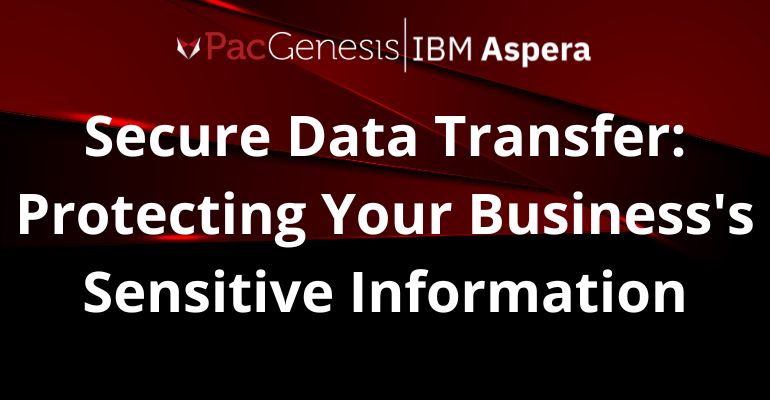Secure Data Transfer: Protecting Your Business’s Sensitive Information

In today’s digital economy, data is more than just a resource—it’s the backbone of modern business operations. From customer details to financial records, intellectual property to internal communications, companies rely heavily on the safe movement of sensitive information. But as reliance on data grows, so does the risk of it falling into the wrong hands. This makes secure data transfer not just a technical concern, but a critical business priority.
The Importance of Data Security
Every business, regardless of size or industry, handles some form of sensitive data. For healthcare providers, it might be patient records; for law firms, confidential legal documents; for e-commerce platforms, credit card information. A breach of any of this data can result in serious consequences—financial loss, reputational damage, regulatory penalties, and even legal action.
Cyberattacks are becoming more sophisticated and frequent. Hackers exploit vulnerabilities in systems, intercept unprotected files in transit, or trick employees into giving away access credentials. Even accidental data leaks—like sending an unencrypted file to the wrong recipient—can cause major problems.
That’s why it’s not enough to have basic antivirus software or strong passwords. Businesses need a holistic approach to data security, and secure file transfer is a crucial component.
What Is Secure Data Transfer?
Secure data transfer refers to the process of transmitting information in a way that prevents unauthorized access, tampering, or loss. It involves using protocols, tools, and practices that ensure data remains confidential and intact while moving from one location to another—whether it’s between employees, departments, third-party vendors, or cloud storage systems.
Some common secure transfer methods include:
- SFTP (Secure File Transfer Protocol) – an encrypted version of FTP, using SSH to protect data in transit.
- HTTPS (Hypertext Transfer Protocol Secure) – encrypts data exchanged between a browser and a web server.
- Encrypted email services – add an extra layer of protection to standard communications.
- Managed File Transfer (MFT) solutions – centralized platforms that automate, monitor, and secure file transfers across an organization.
Risks of Using Inadequate Transfer Solutions
Many companies still rely on outdated or unencrypted methods to send files—like email attachments, consumer-grade cloud storage, or standard FTP. These methods may be convenient, but they leave critical gaps in protection.
Here are a few of the risks:
- Data interception – Without encryption, hackers can intercept files in transit.
- Unauthorized access – If access controls aren’t in place, sensitive files may be opened by unapproved users.
- Lack of audit trails – Many tools don’t log activity, making it difficult to track who accessed what and when.
- Non-compliance – Regulatory frameworks like GDPR, HIPAA, and PCI-DSS require strict data protection protocols. Inadequate transfer methods may result in violations.
Choosing the Right File Transfer Solution
Investing in the right file transfer solution can dramatically reduce your exposure to data breaches and compliance issues. Here’s what to look for:
- End-to-End Encryption: Your solution should use advanced encryption standards (such as AES-256) to secure data both in transit and at rest.
- User Access Controls: Role-based permissions ensure only authorized personnel can send or view specific files.
- Authentication and Identity Verification: Two-factor authentication (2FA) and integration with identity management systems help prevent unauthorized access.
- Audit Trails and Reporting: A comprehensive log of all file activity makes it easy to monitor compliance and identify anomalies.
- Automation Capabilities: Look for platforms that support scheduled or event-triggered transfers, reducing human error and increasing efficiency.
- Scalability and Integration: The solution should integrate with your existing tech stack and grow with your business needs.
Safeguarding Your Reputation and Operations
In a world where a single data breach can cost millions and severely damage customer trust, secure data transfer is not optional—it’s essential. By adopting a robust file transfer solution, you ensure that your business’s sensitive information is protected at every step, from internal collaboration to external communications.
Ultimately, secure data transfer isn’t just about protecting files. It’s about protecting your customers, your reputation, and your future.Ready to strengthen your data security? Contact PacGenesis today to learn how our secure file transfer solutions can help safeguard your business. Whether you’re looking to improve compliance, enhance efficiency, or eliminate vulnerabilities, our team of experts is here to guide you every step of the way.




